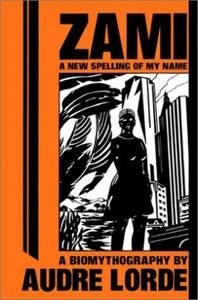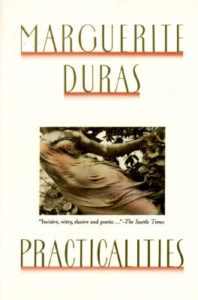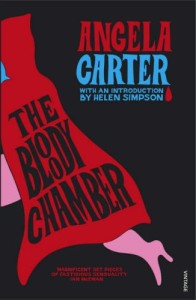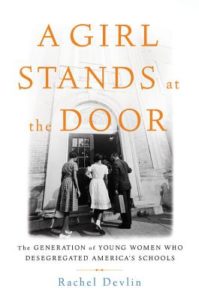
Five Books All Young Women Should Read
Suggestions from the Next Freya Project Readers
Since its formation after the 2016 election, the Freya Project has hosted 12 readings to support multiple small nonprofits across the United States, specifically working in areas threatened by the current administration. This Thursday, five women will read essays on the time they wouldn’t take no for an answer. In a cultural moment when women are standing against assault and demanding equality and reproductive rights, this theme reinforces the power of speaking out. In the spirit of the event, we asked each of the participants to share a book that they think all young women should read.

Naomi Jackson recommends…
Audre Lorde, Zami: A New Spelling of My Name
One of the books that was critical to my formation as a young woman and that I believe all young women should read is Audre Lorde’s Zami: A New Spelling of My Name. At the time when I first read it, I was in high school and chafing against the constraints of my conservative West Indian family. Here was a woman who’d transformed herself from the well-behaved daughter of Caribbean parents into a self-described “black, lesbian, mother, warrior, poet.” I never knew it was possible to inhabit all of these identities at once. Zami showed me a way out of conformity and into myself.

Aditi Juneja recommends…
Brené Brown, Daring Greatly: How the Courage to Be Vulnerable Transforms the Way We Live, Love, Parent, and Lead
I read this book when I was right out of college and thought I was too cool for feelings, but constantly miserable. It taught me about the power of vulnerability, about the armor I was using to avoid being vulnerable, and what to do instead. Most importantly, I learned that you can’t selectively numb emotion—when I numbed vulnerability, I numbed joy. We live in a society where feminized qualities, like being emotional, are devalued. Particularly for those of us who go into traditionally male-dominated professions, our gender is treated like a liability. I think every woman should read this book and relearn what we always knew—we are worthy and deserving of love and belonging just as we are.

Danielle Lazarin recommends…
Marguerite Duras, Practicalities
Marguerite Duras’s Practicalities testifies to the power of women as the storytellers of our own lives. Transcribed from conversations with her friend Jérôme Beaujour, the book evokes listening to a friend who’s lived a full, complicated life sharing what she’s learned. Duras is clear-eyed and confrontational but never didactic. “At most the book represents what I think sometimes, some days, about some things,” she writes in her introduction. Her subjects include everything from her own oeuvre to death, animals, motherhood, significant objects, drinking, her uniform, lovers, what it means to be a woman who writes, and the contents of her pantry. What struck me when I read it last year was how little the perception of a woman’s purpose has changed since Duras collected these ruminations in the late 1980s. I was particularly interested in her thoughts on what it means to be expected to be a caretaker—if not of children, then of other adults, homes, and public image. Whether or not we volunteer for any of these roles or spotlights, “women’s work,” she notes, is perceived of as “the way they manage other people’s good.”

Ariel Lewiton recommends…
Angela Carter, The Bloody Chamber
I can’t remember exactly when I discovered Angela Carter’s story collection The Bloody Chamber, only the wicked thrill I felt encountering the stories for the first time, a feeling that has stayed with me. In The Bloody Chamber, Carter dismantles familiar fairy tales and legends—Bluebeard, Beauty and the Beast, Sleeping Beauty, Little Red Riding Hood, etc—recasting history’s pantheon of damsels in distress as arbiters of their own fates. They bail themselves out, or their mothers do, with cunning and weapons and nerves of steel. They chase after their own desires. Carter’s writing is gorgeous and ornate—gruesome, vengeful, sexy—and her wily heroines are unforgettable. Flipping back through the book, I’ve spotted a note some much younger version of myself penciled into the margin: Angela, you are sick but I love you. Disney movies today offer better female models than the ones I grew up with (all those pale-skinned, tiny-waisted maidens who fell victim to spells and were eventually rescued by strapping men with swords)—but I’d still recommend Angela Carter’s The Bloody Chamber to any young woman who’s eager to chart her own course, seek what she craves, and maybe settle a few scores along the way.

Kio Stark recommends…
Rachel Devlin, A Girl Stands at the Door: The Generation of Young Women Who Desegregated America’s Schools
For years leading up to the national Brown vs. Board of Education decision that outlawed school segregation, young women and girls all over the South brought local lawsuits against their all-white public schools and colleges and fought for the right to attend. They went to the doors of schools every morning knowing they would be mocked and condescended and turned away. These pioneers’ stories have been glossed over by histories of the civil rights movement until now. When they won, they were the “firsts.”They were taunted, spat on, called racist names, and put in physical danger, and they stood up to all of it. This is essential American history—it’s the history of how we got where we are, it’s a history of how student activism changed the world by fighting against powerful forces. It’s your history. Those girls share a lineage with every student activist: #MeToo, gun violence, Black Lives Matter, abortion rights. The book is about knowing the past and knowing your power.



















